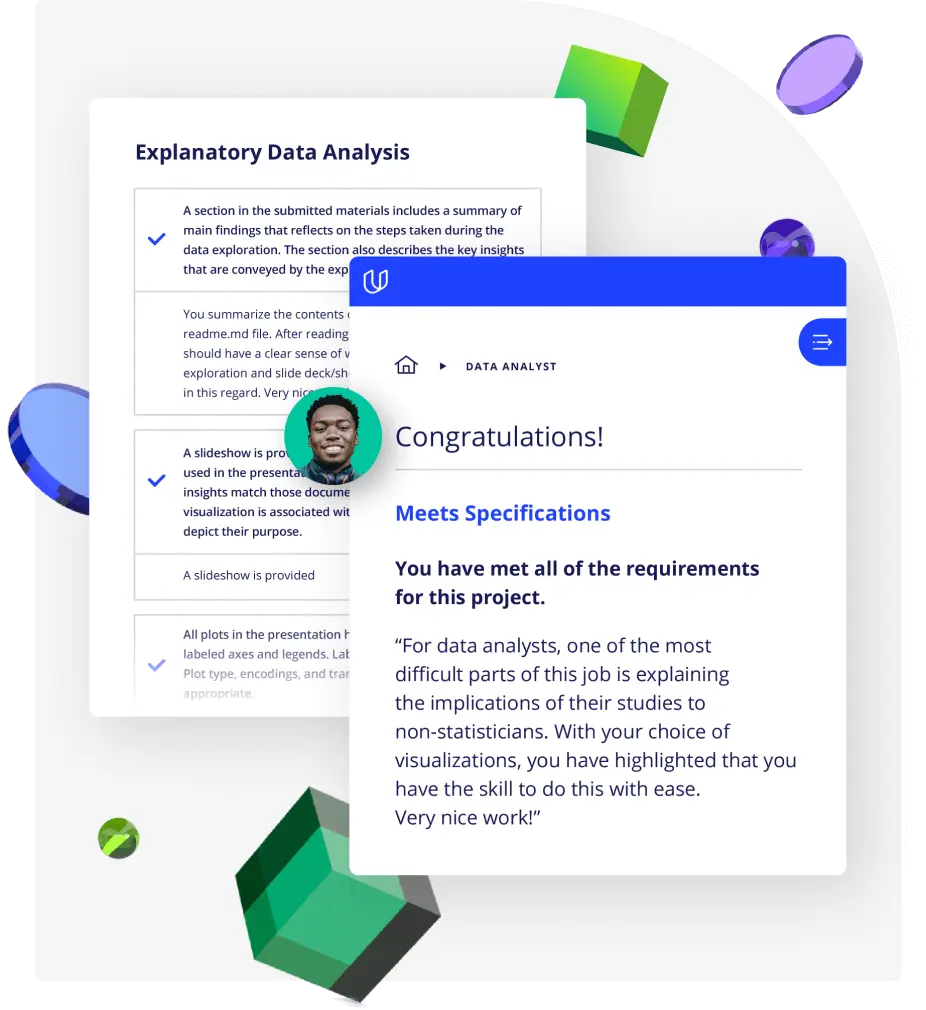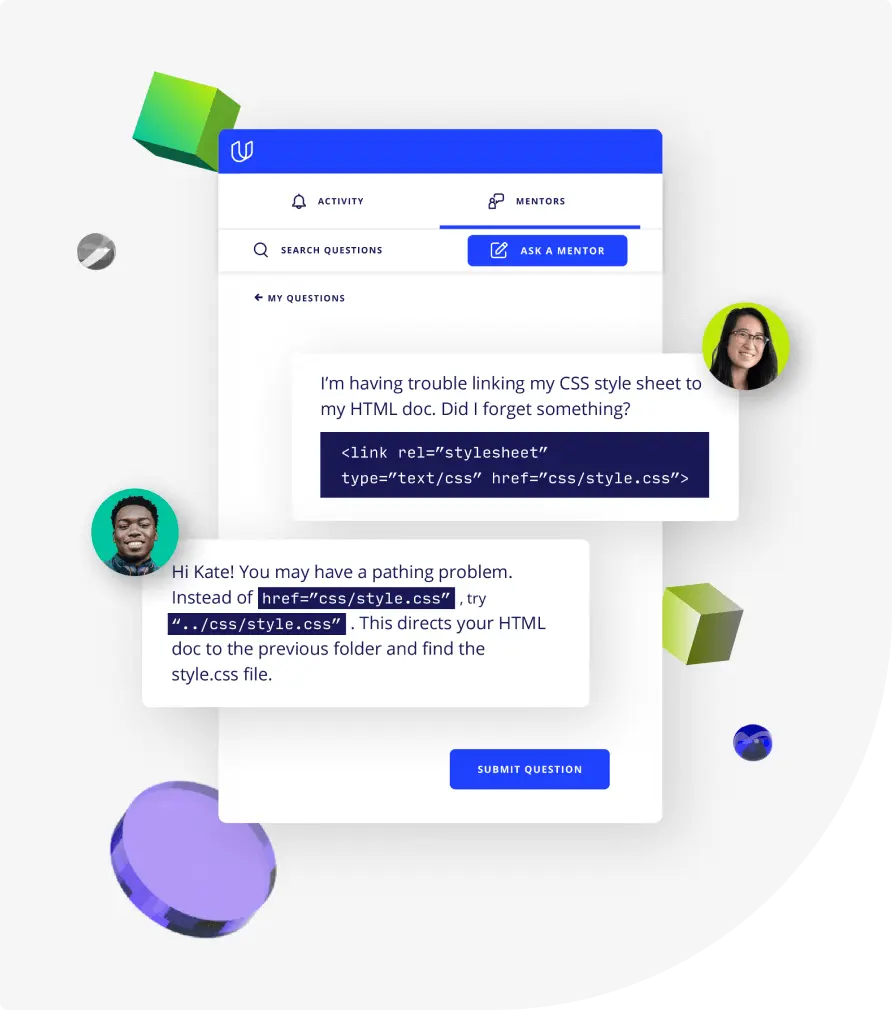Lesson 1
Introduction to Adversarial Search
Extend classical search to adversarial domains, to build agents that make good decisions without any human intervention—such as the DeepMind AlphaGo agent.

Course
Learn how to search in multi-agent environments (including decision making in competitive environments) using the minimax theorem from game theory. Then build an agent that can play games better than any human.
Learn how to search in multi-agent environments (including decision making in competitive environments) using the minimax theorem from game theory. Then build an agent that can play games better than any human.
Advanced
4 weeks
Real-world Projects
Completion Certificate
Last Updated March 13, 2024
Skills you'll learn:
Prerequisites:
Lesson 1
Extend classical search to adversarial domains, to build agents that make good decisions without any human intervention—such as the DeepMind AlphaGo agent.
Lesson 2
Search in multi-agent domains, using the Minimax theorem to solve adversarial problems and build agents that make better decisions than humans.
Lesson 3
Some of the limitations of minimax search and introduces optimizations & changes that make it practical in more complex domains.
Lesson 4 • Project
Build agents that make good decisions without any human intervention—such as the DeepMind AlphaGo agent.
Lesson 5
Extensions to minimax search to support more than two players and non-deterministic domains.
Lesson 6
Introduce Monte Carlo Tree Search, a highly-successful search technique in game domains, along with a reading list for other advanced adversarial search topics.

Professor of Computer Science, Georgia Tech
Thad Starner is the director of the Contextual Computing Group (CCG) at Georgia Tech and is also the longest-serving Technical Lead/Manager on Google's Glass project.
Combine technology training for employees with industry experts, mentors, and projects, for critical thinking that pushes innovation. Our proven upskilling system goes after success—relentlessly.

Demonstrate proficiency with practical projects
Projects are based on real-world scenarios and challenges, allowing you to apply the skills you learn to practical situations, while giving you real hands-on experience.
Gain proven experience
Retain knowledge longer
Apply new skills immediately

Top-tier services to ensure learner success
Reviewers provide timely and constructive feedback on your project submissions, highlighting areas of improvement and offering practical tips to enhance your work.
Get help from subject matter experts
Learn industry best practices
Gain valuable insights and improve your skills

Full Catalog Access
One subscription opens up this course and our entire catalog of projects and skills.
Average time to complete a Nanodegree program
4 weeks
, Advanced
4 weeks
, Advanced
4 weeks
, Intermediate
4 weeks
, Advanced
(328)
2 months
, Advanced
4 weeks
, Intermediate
5 days
, Beginner
3 weeks
, Advanced
(909)
4 months
, Intermediate
4 weeks
, Advanced
4 months
, Intermediate
1 month
, Intermediate
(450)
3 months
, Advanced
4 weeks
, Intermediate
4 weeks
, Intermediate
4 weeks
, Beginner

Adversarial Search
4 weeks
, Advanced
4 weeks
, Advanced
4 weeks
, Intermediate
4 weeks
, Advanced
(328)
2 months
, Advanced
4 weeks
, Intermediate
5 days
, Beginner
3 weeks
, Advanced
(909)
4 months
, Intermediate
4 weeks
, Advanced
4 months
, Intermediate
1 month
, Intermediate
(450)
3 months
, Advanced
4 weeks
, Intermediate
4 weeks
, Intermediate
4 weeks
, Beginner